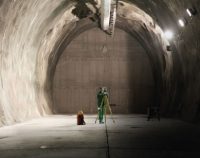Improving Energy Efficiency in Historic Buildings: 2 PDH
$12.00
SPECIFIC KNOWLEDGE OR SKILL OBTAINED
This course teaches the following specific knowledge and skills:
- Inherent energy efficient features of historic buildings
- Concept of conducting an energy audit
- Actions to improve energy efficiency
- Dealing with moisture
- Applicable alternative energy sources
CERTIFICATE OF COMPLETION
You will be able to immediately print a certificate of completion after passing a 10 question multiple-choice quiz. The quiz can be retaken unlimited times until a passing grade of 70% or better is earned. This course satisfies two (2) professional development hours (PDH) of continuing education.
Related Courses
Design and Construction of Road Tunnels-Part 3 Design and Detailing: 5 PDH
$30.00 Add to cartIn this course the student will understand the concepts of the sequential excavation method as well as the design, purpose and construction of tunnel linings, immersed tunnels, and jacked box tunnels.Instructor: Raymond Bosek, PEIn this course the student will understand the concepts of the sequential excavation method as well as the design, purpose and construction of tunnel linings, immersed tunnels, and jacked box tunnelsSPECIFIC KNOWLEDGE OR SKILL OBTAINED
This course teaches the following specific knowledge and skills:
- Sequential excavation method
- Tunnel lining
- Immersed tunnels
- Jacked box tunneling
- Ground classsification
- Instrumentation and monitoring
- Construction methodolgies
- Ground control and watertightness
CERTIFICATE OF COMPLETION
You will be able to immediately print a certificate of completion after passing a 30 question multiple-choice quiz. The quiz can be retaken unlimited times until a passing grade of 70% or better is earned. This course satisfies five (5) professional development hours (PDH) of continuing education.
Preview CourseClick “Preview Course” to View Prior to PurchaseClick “Add to Cart” to Purchase and Access QuizInnovative Building Technology: 5 PDH
$30.00 Add to cartIn this course the student will understand the design process of building and constructing modern innovative buildings using new technology products and methods to increase building efficiency, durability, and sustainability. Instructor: Raymond Bosek, PESPECIFIC KNOWLEDGE OR SKILL OBTAINED
This course teaches the following specific knowledge and skills:
- Discuss the four decision phases for any project
- Understand the economics of implementing new technologies into the design and construction
- Discuss cost/benefits into the decision making process
- Explain feasibility by performance and economics
- Discuss performance measures through design and construction
- Understand building efficiency, durability, and sustainability
- Become familiar with the evaluation tools and resources available during design and construction
CERTIFICATE OF COMPLETION
You will be able to immediately print a certificate of completion after passing a 20 question multiple-choice quiz. The quiz can be retaken unlimited times until a passing grade of 70% or better is earned. This course satisfies five professional development hours (PDH) of continuing education.
Preview CourseClick “Preview Course” to View Prior to PurchaseClick “Add to Cart” to Purchase and Access Quiz




